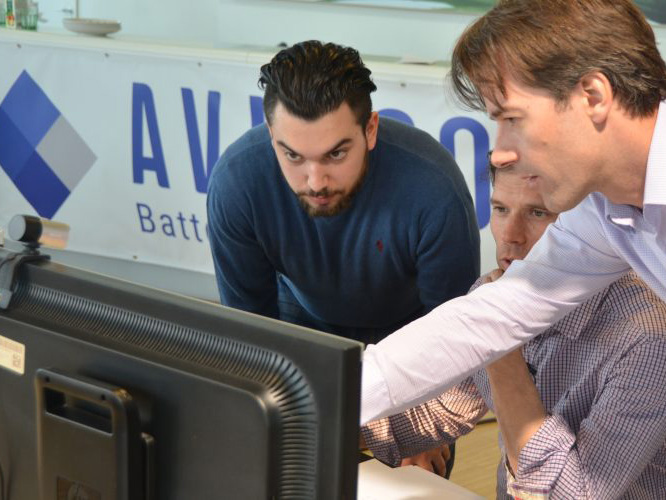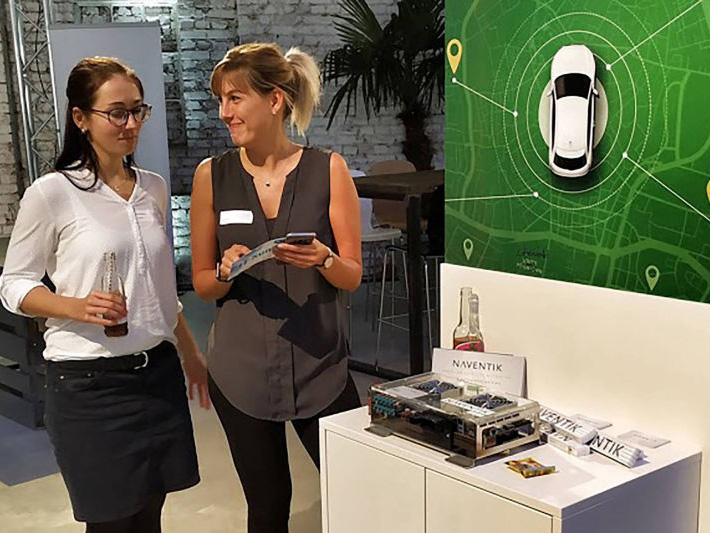Six start-ups, one goal: the mobility of tomorrow
From battery diagnostics to automated driving: six start-ups are bringing their projects to the Volkswagen Group’s Future Mobility Incubator in Dresden.
To turn a car manufacturer into a mobility services provider is necessary to act in the present while looking to the future, without forgetting the past: this is the challenge that the Volkswagen Group is currently taking on.
Giving proper importance to the future also means investing in the most innovative start-ups that can make a substantial contribution to the mobility of tomorrow. Like in the case of the Future Mobility Incubator in Dresden, which has been supporting young companies for some years and has recently started up a new mentoring phase with six companies: Aviloo, Kopernikus, Naventik, Visualix, home-IX and LiGenium.
Hi-tech Dresden
Start-ups have the opportunity to develop their projects with the support of the Volkswagen Group and of a team specialised in developing business of the capital of Lower Saxony. The ideas that made the companies gain entry into the Incubator mainly focuse on topics such as diagnosis solutions for batteries, navigation devices, image processing, smart home-car connection and solutions for autonomous driving. “We were very impressed by the wide range of ideas. We intend to develop them and prepare them for the market,” explained Marco Weiß, head of Future Mobility & Innovation at the Gläserne Manufaktur.
Here is a brief overview of the selected start-up projects.
Aviloo

This Vienna-based start-up has developed a diagnosis system for batteries for electric vehicles. The health status of the battery can be assessed quickly and cheaply during a short test drive. It also has benefits for the second-hand market: this tool will provide a basis for stable resale prices for electric vehicles.
home-iX
This start-up from Stuttgart specialises in smart living solutions and has developed a platform to connect companies and the Internet of Things. Furthermore, home-iX makes smart ecosystems compatible with one another and allows devices and connected objects, including vehicles, to communicate through a single interface.
Kopernikus
Kopernikus is based in Berlin and develops solutions for automated driving. Its mission is to complement today’s production vehicles with a range of automated driving functions as quickly as possible.
They aim to achieve this by bundling the various existing self-driving software solutions onto one platform. The use of the software is adapted to different vehicle models and local traffic conditions. The first solution developed is based on artificial intelligence and is already capable of enabling cars to drive autonomously on private premises, for example factories or workshops.
LiGenium
This start-up from Chemnitz develops and manufactures machine components, machines and complete systems using renewable materials. For example, wood-based materials – which are light, robust and environmentally friendly and used in modular loading systems.
Naventik

Also from Chemnitz, Naventik is active in satellite navigation for highly automated and autonomous driving. Its goal is to provide a high-precision geolocation service in urban areas where satellite signals do not always reach, by using innovative software algorithms.
Visualix
This Berlin-based start-up specialises in image processing. Its technology enables mapping and localisation that are accurate to centimetre level, even on standard smartphones.
Source: Volkswagen
